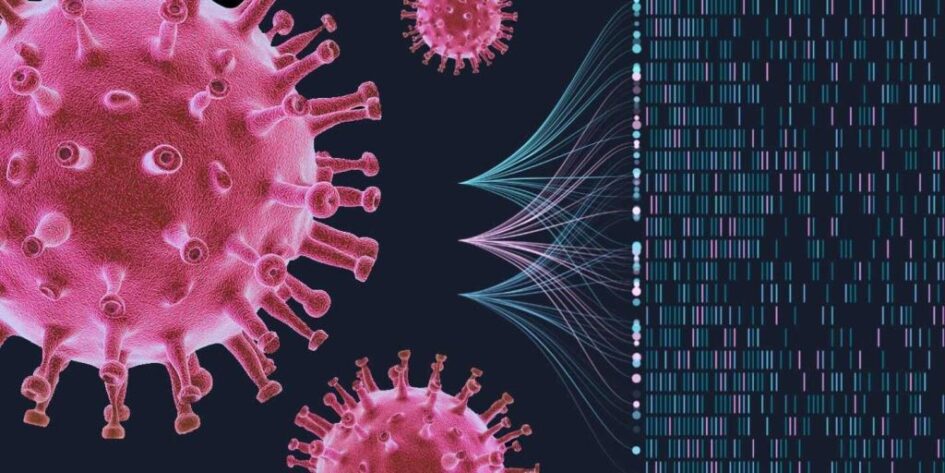TOTT News
Researchers have unveiled a nationalised genomics surveillance platform that will enable real-time sharing, analysis and reporting of COVID-19 pathogen genomic data.
Australian researchers have unveiled a nationalised genomics surveillance platform that will enable real-time sharing, analysis and reporting of COVID-19 pathogen genomic data.
The platform, known as ‘AusTrakka’, has been developed by researchers from the Peter Doherty Institute for Infection and Immunity, and the overview was published in Nature Communications on Monday.

AusTrakka has emerged to fill ‘the urgent need’ for a nationally consistent genomics database during the pandemic, and has been applied to track transmission within and between jurisdictions.
The platform is now embedded in the public health system, hoping to provide a central location for public health laboratories (PHLs) to deposit whole-genome sequence data of pathogens.
This “ensures harmonised analyses of the data and provides access to all PHLs to the same computational resources and environment, thus providing the same analytical output to all participating PHLs”.

How does it work?
Public laboratories will upload SARS-CoV-2 genomic sequences to AusTrakka in real time.
Once the new data is available, the phylogenetic tree depicting all the sequences for the country will be updated within a few hours. From this point..
“The genomic data enriches the epidemiological data by providing, for instance, strong evidence for exclusion of cases from epidemiological investigation, uncovering hidden epidemiological links, and confirming suspected epidemiological links,” the researchers wrote.
Researchers say the next focus for AusTrakka will be to expand the cover list of pathogens to include additional viruses, such as those responsible for foodborne diseases. It also aims to include additional countries in the Southwest Pacific and Southeast Asia

“AusTrakka is now the nationally recognised platform for real-time analysis of integrated pathogen genomic data for public health across Australia, providing a central, secure and private online location to share, store, analyse and view aggregated national and jurisdictional data.”
The AusTrakka Governance is operated be the Communicable Diseases Genomics Network and is maintained by the AusTrakka Development Team at the University of Melbourne.
A specific Framework for SARS-CoV-2 data sharing and analysis using AusTrakka was developed in anticipation for this program, designed to provide a mechanism for rapid data sharing and genomic analysis under various operational situations and between jurisdictions and nationally.Advertisementshttps://c0.pubmine.com/sf/0.0.3/html/safeframe.htmlREPORT THIS AD
GENOMIC SURVEILLANCE
Before the COVID-19 pandemic, genomic surveillance was reserved mainly for conducting small studies of antibiotic-resistant bacteria, investigating outbreaks and monitoring influenza strains.
Genomic epidemiologists and infectious disease specialists perform these kinds of tests every day in their labs, working ‘to puzzle’ out how viruses evolve and moving through the population.
However, as new ‘coronavirus variants of concern’ continue to emerge, genomic surveillance has now transitioned to play an important role to play in helping bring the pandemic under control.
Genome sequencing involves deciphering the order of the nucleotide molecules that spell out a particular virus’s genetic code. Vaccine developers and other scientists then use this genetic information ‘to test how new variants change and how well the vaccines work’.
What is their definition of the vaccine ‘working’, I wonder?
For ‘improvement’ or an Epsilon tracker?
Genomic surveillance works on the basis that everything with a genome (humans, animals, plants, bacteria, viruses…) needs to replicate their genetic material in order to reproduce, and this results in changes known as “mutations”.
Are they tracking genetic mutations of the sheep as well?
Either way, we do know that this type of system is not new.
The COVID-19 Host Genetics Initiative included 127 studies in an international collaboration to investigate the ‘genomes of those infected by coronavirus’.
We also have seen the International COVID-19 Data Research Alliance — co-founded and funded by Bill and Melinda Gates Foundation.
Even the U.S. CDC admitted this week that nose swaps have been taken away for analysis:
https://platform.twitter.com/embed/Tweet.html?dnt=true&embedId=twitter-widget-
Interestingly, a new draft report by the World Health Organization on their international genomic surveillance strategy gives a timeframe of 2022 to 2032. A ten year period beginning this year.


